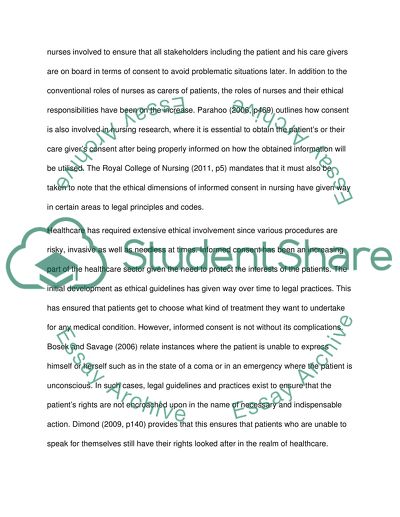Cite this document
(“LEGAL ASPECT OF CONSENT IN NURSING Essay Example | Topics and Well Written Essays - 1000 words”, n.d.)
Retrieved from https://studentshare.org/nursing/1481297-legal-aspect-of-consent-in-nursing
Retrieved from https://studentshare.org/nursing/1481297-legal-aspect-of-consent-in-nursing
(LEGAL ASPECT OF CONSENT IN NURSING Essay Example | Topics and Well Written Essays - 1000 Words)
https://studentshare.org/nursing/1481297-legal-aspect-of-consent-in-nursing.
https://studentshare.org/nursing/1481297-legal-aspect-of-consent-in-nursing.
“LEGAL ASPECT OF CONSENT IN NURSING Essay Example | Topics and Well Written Essays - 1000 Words”, n.d. https://studentshare.org/nursing/1481297-legal-aspect-of-consent-in-nursing.


